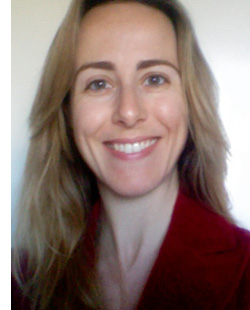 This week, OPN talks with Costanza Zucca, editorial manager with the Frontiers journals, a series of open-access publications driven by researchers for researchers. Costanza obtained a Ph.D. in plasma physics from the Swiss Federal Institute of Technology, Lausanne, in 2009. Her work on thermonuclear fusion research focused on the design of operational scenarios with high-output power for the first prototype of a fusion reactor.
This week, OPN talks with Costanza Zucca, editorial manager with the Frontiers journals, a series of open-access publications driven by researchers for researchers. Costanza obtained a Ph.D. in plasma physics from the Swiss Federal Institute of Technology, Lausanne, in 2009. Her work on thermonuclear fusion research focused on the design of operational scenarios with high-output power for the first prototype of a fusion reactor.
After taking a sabbatical in South America, Costanza decided to pursue a different career path. She quit research and joined the Frontiers group at the end of 2009 as the main coordinator of the marketing and communication office. She became editorial manager at the end of 2010, overseeing all activities related to the current "Frontiers in" journals as well as the launch of new journals.
OPN: How did you know that publishing was your calling?
Costanza: While I sort of stumbled into it by accident, looking back it's clear that I’ve always had a genuine interest in communicating about science. Even during my student years, when I was working on a thermonuclear fusion experiment, I often volunteered to show visitors around our facilities. I enjoyed thinking of new “kitchen physics” examples that could help render complex concepts into something tangible. One of my favorites was figuring out the number of microwave ovens that was required to match the power generated by our electron-cyclotron resonance heating (over 3,000!). Now that I am working at the interface between academia and industry at an international level, there are higher stakes, but it’s still about communicating science.
OPN: How did you use your skills and expertise to start working in this field?
Costanza: It’s been a natural fit. Frontiers was started by a group of active scientists, and I instantly felt aligned with the company’s philosophy of shaping the future of scientific communication. In a way, working for a start-up is similar to research work, in that you have to be very creative in thinking of new initiatives, then pick the most promising ideas and experiment with them. Those skills were well rooted in me, since I came from a research background.
OPN: What are the most difficult and rewarding aspects of your job?
Costanza: The most rewarding part by far is having had an active role in the tremendous progression of Frontiers in just four years of existence. It definitely makes me want to be part of the team continuing to move this forward, although it’s been hard to get to this point: unlike us, many scientists did not initially feel the need for an innovative publisher such as Frontiers. But I consider myself very lucky to have joined at such an early stage.
OPN: What is your perspective on open-access journals and their place in scientific publishing?
Costanza: I am more and more convinced that an online open-access distribution model, with an emphasis on social media, is very much where scientific publishing is headed. There are still many avenues to explore regarding the related business models, so there is space for everyone to come up with new paradigm-shifting initiatives. We are witnessing a revolution in scientific publishing.
